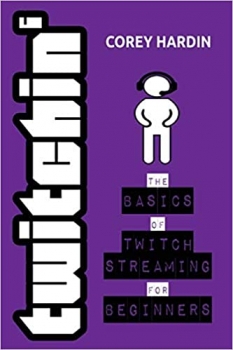این کتاب به صورت رنگی است.
Product details
- Publisher : Packt Publishing (August 25, 2021)
- Language : English
- Paperback : 670 pages
- ISBN-10 : 1838986197
- ISBN-13 : 978-1838986193
کتاب 3D Graphics Rendering Cookbook: A comprehensive guide to exploring rendering algorithms in modern OpenGL and Vulkan
Build a 3D rendering engine from scratch while solving problems in a step-by-step way with the help of useful recipes
Key Features
- Learn to integrate modern rendering techniques into a single performant 3D rendering engine
- Leverage Vulkan to render 3D content, use AZDO in OpenGL applications, and understand modern real-time rendering methods
- Implement a physically based rendering pipeline from scratch in Vulkan and OpenGL
Book Description
OpenGL is a popular cross-language, cross-platform application programming interface (API) used for rendering 2D and 3D graphics, while Vulkan is a low-overhead, cross-platform 3D graphics API that targets high-performance applications. 3D Graphics Rendering Cookbook helps you learn about modern graphics rendering algorithms and techniques using C++ programming along with OpenGL and Vulkan APIs.
The book begins by setting up a development environment and takes you through the steps involved in building a 3D rendering engine with the help of basic, yet self-contained, recipes. Each recipe will enable you to incrementally add features to your codebase and show you how to integrate different 3D rendering techniques and algorithms into one large project. You'll also get to grips with core techniques such as physically based rendering, image-based rendering, and CPU/GPU geometry culling, to name a few. As you advance, you'll explore common techniques and solutions that will help you to work with large datasets for 2D and 3D rendering. Finally, you'll discover how to apply optimization techniques to build performant and feature-rich graphics applications.
By the end of this 3D rendering book, you'll have gained an improved understanding of best practices used in modern graphics APIs and be able to create fast and versatile 3D rendering frameworks.
What you will learn
- Improve the performance of legacy OpenGL applications
- Manage a substantial amount of content in real-time 3D rendering engines
- Discover how to debug and profile graphics applications
- Understand how to use the Approaching Zero Driver Overhead (AZDO) philosophy in OpenGL
- Integrate various rendering techniques into a single application
- Find out how to develop Vulkan applications
- Implement a physically based rendering pipeline from scratch
- Integrate a physics library with your rendering engine
Who this book is for
This book is for 3D graphics developers who are familiar with the mathematical fundamentals of 3D rendering and want to gain expertise in writing fast rendering engines with advanced techniques using C++ libraries and APIs. A solid understanding of C++ and basic linear algebra, as well as experience in creating custom 3D applications without using premade rendering engines is required.
Table of Contents
- Establishing a Build Environment
- Using Essential Libraries
- Getting Started with OpenGL and Vulkan
- Adding User Interaction and Productivity Tools
- Working with Geometry Data
- Physically Based Rendering Using the glTF2 Shading Model
- Graphics Rendering Pipeline
- Image-based Techniques
- Working with Scene Graphs
- Advanced Rendering Techniques and Optimizations
منابع کتاب کتاب 3D Graphics Rendering Cookbook: A comprehensive guide to exploring rendering algorithms in modern OpenGL and Vulkan
ساخت موتور رندر سه بعدی از ابتدا در حین حل مشکلات به صورت گام به گام با کمک دستور العمل های مفید
ویژگی های کلیدی
- یاد بگیرید که تکنیک های رندر مدرن را در یک موتور رندر سه بعدی با عملکرد ادغام کنید
- از Vulkan برای رندر کردن محتوای سه بعدی، استفاده از AZDO در برنامه های OpenGL و درک روش های مدرن رندر زمان واقعی استفاده کنید.
- یک خط لوله رندر مبتنی بر فیزیکی را از ابتدا در Vulkan و OpenGL پیاده سازی کنید
توضیحات کتاب
OpenGL یک رابط برنامه نویسی کاربردی بین پلتفرمی محبوب (API) است که برای رندر کردن گرافیک های دو بعدی و سه بعدی استفاده می شود، در حالی که Vulkan یک API گرافیکی سه بعدی کم سربار است که برنامه های کاربردی با کارایی بالا را هدف قرار می دهد. کتاب آشپزی رندر گرافیک سه بعدی به شما کمک می کند تا با الگوریتم ها و تکنیک های رندر گرافیک مدرن با استفاده از برنامه نویسی C++ همراه با OpenGL و API های Vulkan آشنا شوید.
این کتاب با راهاندازی یک محیط توسعه آغاز میشود و شما را در مراحل ساخت موتور رندر سه بعدی با کمک دستور العملهای اولیه و در عین حال مستقل راهنمایی میکند. هر دستور غذا به شما این امکان را می دهد که به صورت تدریجی ویژگی هایی را به پایگاه کد خود اضافه کنید و به شما نشان می دهد که چگونه تکنیک ها و الگوریتم های مختلف رندر سه بعدی را در یک پروژه بزرگ ادغام کنید. شما همچنین با تکنیک های اصلی مانند رندر فیزیکی، رندر مبتنی بر تصویر، و حذف هندسه CPU/GPU آشنا خواهید شد. همانطور که پیش می روید، تکنیک ها و راه حل های رایجی را کشف خواهید کرد که به شما کمک می کند با مجموعه داده های بزرگ برای رندر دو بعدی و سه بعدی کار کنید. در نهایت، نحوه به کارگیری تکنیکهای بهینهسازی برای ساخت برنامههای گرافیکی با عملکرد و ویژگیهای غنی را خواهید یافت.
در پایان این کتاب رندر سه بعدی، درک بهتری از بهترین شیوه های مورد استفاده در API های گرافیکی مدرن به دست خواهید آورد و می توانید چارچوب های رندر سه بعدی سریع و همه کاره ایجاد کنید.
آنچه خواهید آموخت
- بهبود عملکرد برنامه های کاربردی OpenGL قدیمی
- حجم قابل توجهی از محتوا را در موتورهای رندر سه بعدی در زمان واقعی مدیریت کنید
- نحوه اشکال زدایی و پروفایل برنامه های گرافیکی را کشف کنید
- درک نحوه استفاده از فلسفه نزدیک شدن به صفر راننده سربار (AZDO) در OpenGL
- ادغام تکنیک های مختلف رندر در یک برنامه واحد
- نحوه توسعه برنامه های Vulkan را بیابید
- یک خط لوله رندر مبتنی بر فیزیکی را از ابتدا اجرا کنید
- یک کتابخانه فیزیک را با موتور رندر خود ادغام کنید
این کتاب برای چه کسی است
این کتاب برای توسعه دهندگان گرافیک سه بعدی است که با اصول ریاضی رندر سه بعدی آشنا هستند و می خواهند در نوشتن موتورهای رندر سریع با تکنیک های پیشرفته با استفاده از کتابخانه ها و API های ++C مهارت کسب کنند. درک کاملی از C++ و جبر خطی پایه و همچنین تجربه در ایجاد برنامه های کاربردی سه بعدی سفارشی بدون استفاده از موتورهای رندر از پیش ساخته شده مورد نیاز است.
فهرست مطالب
- ایجاد یک محیط ساخت
- استفاده از کتابخانه های ضروری
- شروع کار با OpenGL و Vulkan
- افزودن ابزارهای تعامل و بهره وری با کاربر
- کار با داده های هندسی
- رندر مبتنی بر فیزیکی با استفاده از مدل سایهزنی glTF2
- خط لوله رندر گرافیک
- تکنیک های مبتنی بر تصویر
- کار با نمودارهای صحنه
- تکنیک های رندر پیشرفته و بهینه سازی






























ارسال نظر درباره کتاب 3D Graphics Rendering Cookbook: A comprehensive guide to exploring rendering algorithms in modern OpenGL and Vulkan